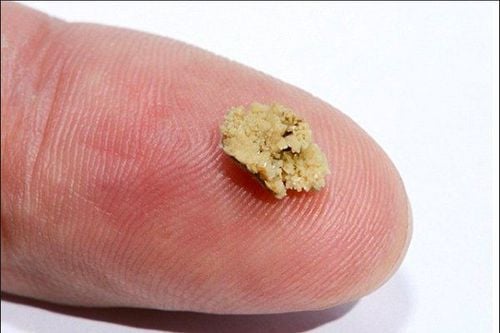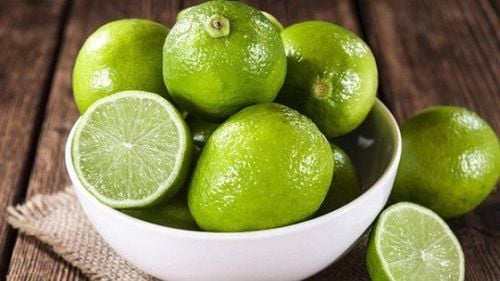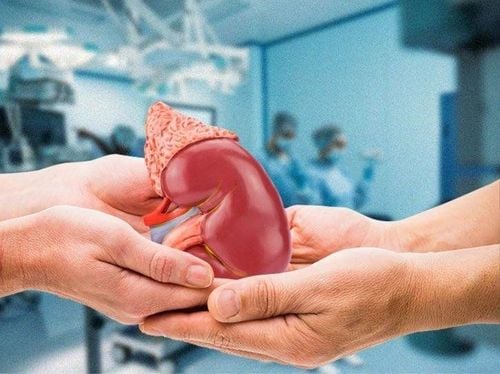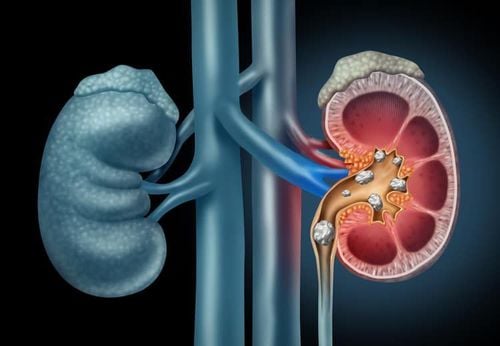This article is consulted with a Urologist - Department of General Surgery and Anesthesiology at Vinmec Hai Phong International General Hospital
Kidney stones are a fairly common condition in our country, affecting people of all ages, especially the elderly. Kidney stones account for up to 50% of stone-related diseases, are prone to recurrence, and can cause many complications, the most dangerous of which is kidney failure.
1. Are 6-7mm kidney stones dangerous?
Kidney stones develop silently due to the deposition of mineral salts in the urine. Over time, these salts accumulate and form stones. Initially, the stones are small and often asymptomatic. As they grow larger, they can obstruct the urinary tract, causing infections and leading to symptoms like flank pain, frequent urination, at which the patient will visit the doctor’s office and figure out the stones.
Stones smaller than 5mm often pass naturally through urination. However, larger stones, 7mm or more, are less likely to pass spontaneously. These larger stones can cause severe pain in the flanks, frequent urination, and even infection and fever. At this moment, the patient should go to the clinic immediately for further examination and suitable treatment.
If left untreated, kidney stones can lead to complications such as urinary tract obstruction, infection, acute or chronic kidney failure, and even kidney rupture.
2.Taking medication or having surgery for 6-7mm kidney stones?
The treatment for kidney stones depends on two factors:
- Size of the stone
- Impact of the stone on the kidney

For 6mm kidney stones, medical treatment is often recommended, which involves increasing urine output. Some medications can dissolve certain types of stones, such as uric acid or cystine stones. However, these medications cannot dissolve calcium stones, which account for 80% of kidney stones.
For 7mm kidney stones that cause obstruction or urinary tract infection, surgical intervention may be necessary. Surgical options include open surgery and minimally invasive procedures. Open surgery is now rarely performed in developed countries due to its higher risk of postoperative complications. However, in Vietnam, open surgery is still commonly used, especially in late cases of large stones or those with complications.
Surgical options for 6-7mm kidney stones include:
- Standard Percutaneous Nephrolithotomy (PCNL): This is a high-technique minimally invasive procedure that can be used to treat large stones, especially those larger than 25mm, including staghorn calculi (kidney stones that have a branching shape). During surgery, the patient is under general anesthesia, experiences minimal pain, the incision is less than 1 cm, there is minimal kidney damage, and the hospital stay is only about 3-5 days.
- Mini Percutaneous Nephrolithotomy (Mini PCNL): This procedure is similar to standard PCNL but uses smaller instruments. It is suitable for stones between 15-25mm. This method reduces the hospital stay to 1-2 days and has other advantages such as: minimal pain, reduced bleeding, minimal damage to kidney function, and a very small, almost imperceptible scar.
- Ureteroscopy: This procedure involves using a very small telescope to access the stone and using a laser to break it into smaller pieces. Next, the fragmented stone pieces are suctioned out through the endoscope. Finally, a soft stent is placed in the urinary system, with both ends coiled in the kidney and bladder (also known as a JJ stent). This stent is removed after 2 weeks. The advantages of this method include: minimal pain, no surgical scars, and a hospital stay of only 1 day.
- Extracorporeal Shock Wave Lithotripsy (ESWL): This is the most effective and gentle way of treating the stones. Extracorporeal Shock Wave Lithotripsy (ESWL) uses shock waves to break up the stone, after which the stone fragments are naturally excreted through the urine. This method requires a short hospital stay of half a day and has a stone clearance rate of approximately 55-85%.

6-7mm kidney stones are neither too large nor too small. Treatment options can include medication or surgical procedures. The choice of treatment depends on the type of stone, its impact on the kidney, the availability of equipment, and the expertise of the physician. Therefore, patients should consult with a specialist for an accurate diagnosis and appropriate treatment plan, not followothers advice or personal experience.
To arrange an appointment, please call HOTLINE or make your reservation directly HERE. You may also download the MyVinmec app to schedule appointments faster and manage your reservations more conveniently.













